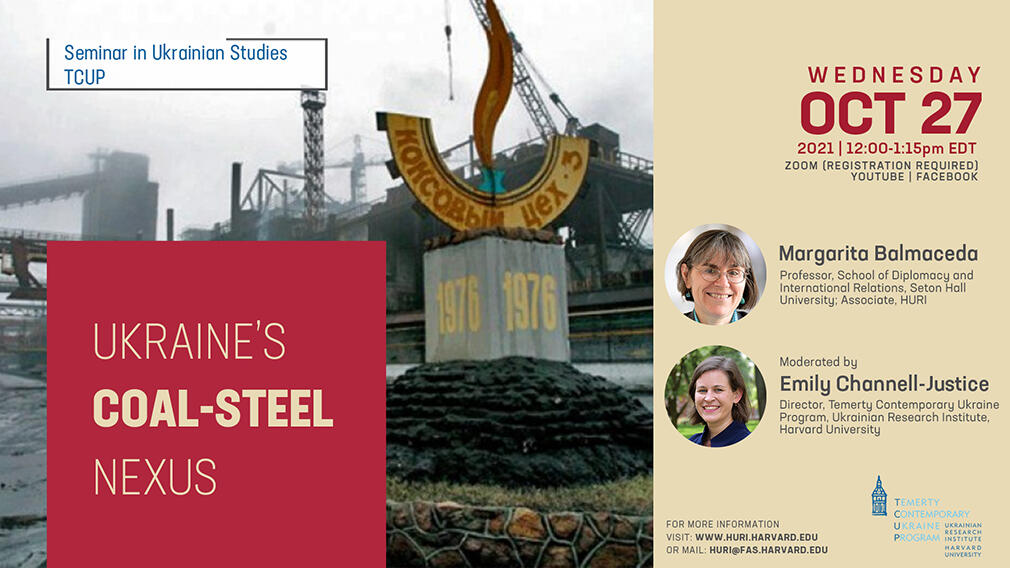Date:
Location:
Margarita Balmaceda, Professor, School of Diplomacy and International Relations, Seton Hall University; Associate, HURI
Moderated by Emily Channell-Justice, Director, Temerty Contemporary Ukraine Program
Register for Zoom or watch on YouTube
Abstract
Following a coal molecule from its mining in Siberia, through processing and transformation into steel in Ukraine, and to final sale in Germany provides a unique glimpse into the ways technology, governance, and foreign relationships interact against the background of tightly woven production chains cutting across conflict lines (with the so-called “DNR” and “LNR”) and official borders (with Russia and EU member states). This example allows us to see how the physical characteristics of coal allowed it to be used –materially and symbolically – not only by Russia, but by key Ukrainian economic actors in a way that would indelibly mark Ukraine’s future political development, through the way it supported a certain brand of politics in Ukraine and encouraged the survival of an ultimately unviable economic model in the Donbas region.
About the Speaker
Margarita M. Balmaceda (PhD, Princeton University) is Professor of Diplomacy and International Relations at Seton Hall University and an Associate at the Ukrainian Research Institute and the Davis Center for Russian and Eurasian Studies at Harvard University. Concurrently, she heads the Study Group on “Energy Materiality: Infrastructure, Spatiality and Power” at the Hanse Wissenschaftskolleg (Germany). She is also head of the Academic Advisory Board of the Forschungsstelle Osteuropa at the University of Bremen. Her past research (supported by a Marie Skłodowska-Curie Fellowship from the EU, among others) has focused on the energy politics of energy-poor states. Her books on the issue include: The Politics of Energy Dependency: Ukraine, Belarus and Lithuania Between Domestic Oligarchs and Russian Pressure (Toronto: U. of Toronto Press, 2013), Living the High Life in Minsk: Russian Energy Rents, Domestic Populism and Belarus’ Impending Crisis (Budapest: CEU Press, 2014), and Energy Dependency, Politics and Corruption in the Former Soviet Union (London and New York: Routledge, 2008). She has conducted extensive research in Ukraine, Russia, Belarus, Lithuania, Moldova, and Hungary. Her latest book project, Russian Energy Chains: The Remaking of Technopolitics from Siberia to Ukraine to the European Union, was published this summer by Columbia University Press.
Moderator: Emily Channell-Justice, Director, Temerty Contemporary Ukraine Program, Ukrainian Research Institute, Harvard University
───◊───
Persons with disabilities who wish to request accommodations or who have questions about access, please contact Megan Duncan Smith, HURI Programs Coordinator, at duncansmith@fas.harvard.edu in advance of the session (at least two weeks prior, if possible).
Watch videos of past HURI events on our YouTube Channel and subscribe to our email list to receive announcements about events and other activities.
